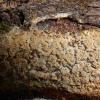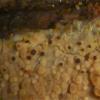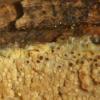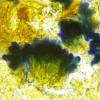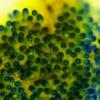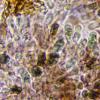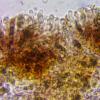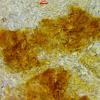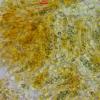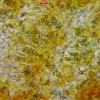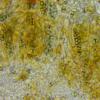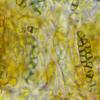
16-02-2026 21:25
 Andreas Millinger
Andreas Millinger
Good evening,failed to find an idea for this fungu

08-12-2025 17:37
 Lothar Krieglsteiner
Lothar Krieglsteiner
20.6.25, on branch of Abies infected and thickened

17-02-2026 17:26
 Nicolas Suberbielle
Nicolas Suberbielle
Bonjour à tous, Je recherche cette publication :

15-02-2026 04:32
One more specimen that is giving me some descent a

17-02-2026 13:41
Isabelle CharissouBonjour, est-ce que quelqu'un pourrait me fournir

16-02-2026 18:34
 Thierry Blondelle
Thierry Blondelle
Bonjour,La micro de cet anamorphe de Hercospora su

16-02-2026 17:14
Joanne TaylorLast week we published the following paper where w

16-02-2026 16:53
Isabelle CharissouBonjour, quelqu'un pourrait-il me transmettre un
ascomycete from Portugal
Lothar Krieglsteiner,
22-03-2022 13:05
 collected 4.3.22 in the Algarve, Serra Monchique, Northern slope of Foia, ca. 230 m NN, on specimen of corticioid fungus (cf. Hyphodontia s.l. spec. - yet to determine) on branch of Arbutus unedo.
collected 4.3.22 in the Algarve, Serra Monchique, Northern slope of Foia, ca. 230 m NN, on specimen of corticioid fungus (cf. Hyphodontia s.l. spec. - yet to determine) on branch of Arbutus unedo. The small brown dots on the corticioid fungus showed interesting features, such as very strongly amyloid thick-walled asci, as well as small (about 5 µm, not yet accurately measured) black and thickly septate ascospores.
First I thought of Gelationopsis or related genera, but this seems to be a mishint.
I think the fungus is related to lichens, but there are no algae in the tissue of the fungus as well as not in the likely host, the corticioid fungus.
Does somebody know this or similar fungi?
Thanks, Lothar
p.s.: two pictures in Baral, the others in water
Hans-Otto Baral,
22-03-2022 15:52

Re : ascomycete from Portugal
Hallo Lothar
I understand you do not have a scale for measures.
Looks much like a Dactylospora (now named Sclerococcum after the anamorph).
Spores seem mainly 1-septate and rather broad. What size would you guess?
How large are the apos?
Zotto
Lothar Krieglsteiner,
22-03-2022 16:04

Re : ascomycete from Portugal
First thanks for your response - Dactylospora, surely, I should have thought of this ...
Surely I have a measure, and you see the scale bar of 5 µm in most pictures (as you know the 5 µm are the inside of the line without the marginal bars). The spores are about 5 µm long, I did not measure them exactly but it can be taken out of the fotos.
I will look to find a perhaps fitting species of Dactylospora.
Thanks again and best regards, Lothar
Surely I have a measure, and you see the scale bar of 5 µm in most pictures (as you know the 5 µm are the inside of the line without the marginal bars). The spores are about 5 µm long, I did not measure them exactly but it can be taken out of the fotos.
I will look to find a perhaps fitting species of Dactylospora.
Thanks again and best regards, Lothar
Hans-Otto Baral,
22-03-2022 16:12

Re : ascomycete from Portugal
Ah o.k., now I see. I actually prefer when workers calculate their spores rather than I need to do it. 5 µm is small indeed!
Lothar Krieglsteiner,
23-03-2022 09:58

Sclerococcum (Dactylospora) from Portugal
As I wrote in my first contribution in this thread, I forgot to measure the spores while I was examining, and that they are about 5 µm long. From the scale bars I now calculate the spores to be about (4,2)-4,5-5(5,5)/2,4-2,7 µm roughly. This is, actually, very small for Dactylospora (or Sclerococcum now). I searched a bit but did not find species with such small spores.
The apothecia were very small, I guess about 0,3-0,5 mm (here I really have no measure).
One picture I found in the internet seems to have similar spore form: D. anziae described from South-Eastern Asia. I came after it when searching for D. imperfecta (for which I did not find any information). Unfortunately, I was not able to get the publication (see https://www.semanticscholar.org/paper/Dactylospora-anziae%2C-a-new-lichenicolous-ascomycete-Zhurbenko-Ezhkin/ebc48884fd1c26b6164aaa9e001ba8e23377749f/figure/0) but could only look at the picture. But surely it is not my species.
Are there other hints for me?
Yours, Lothar
P.S. The microscopical details point in the direction of Dactylospora, and I missed to see this. But the macroscopical appearance was a bit different, only brown and not fully black, and also quite soft-fleshed (easy to remove from the corticioid fungus and easy to squash). Perhaps D. rubiginosa Hafellner could thus be similar but it has distinctly larger spores (7-11,5 x 3,5-6).
The apothecia were very small, I guess about 0,3-0,5 mm (here I really have no measure).
One picture I found in the internet seems to have similar spore form: D. anziae described from South-Eastern Asia. I came after it when searching for D. imperfecta (for which I did not find any information). Unfortunately, I was not able to get the publication (see https://www.semanticscholar.org/paper/Dactylospora-anziae%2C-a-new-lichenicolous-ascomycete-Zhurbenko-Ezhkin/ebc48884fd1c26b6164aaa9e001ba8e23377749f/figure/0) but could only look at the picture. But surely it is not my species.
Are there other hints for me?
Yours, Lothar
P.S. The microscopical details point in the direction of Dactylospora, and I missed to see this. But the macroscopical appearance was a bit different, only brown and not fully black, and also quite soft-fleshed (easy to remove from the corticioid fungus and easy to squash). Perhaps D. rubiginosa Hafellner could thus be similar but it has distinctly larger spores (7-11,5 x 3,5-6).
Hans-Otto Baral,
23-03-2022 10:18

Re : ascomycete from Portugal
Hallo Lothar
I was able to download the Zhurbenko article
Zotto
Lothar Krieglsteiner,
23-03-2022 10:40

Re : ascomycete from Portugal
Hi Zotto,
thanks a lot - I don`t know why it did not work for me.
Anyway - the spores are distinctly larger as they seem in all known species (?). We have to look further.
Best, Lothar
thanks a lot - I don`t know why it did not work for me.
Anyway - the spores are distinctly larger as they seem in all known species (?). We have to look further.
Best, Lothar
Hans-Otto Baral,
23-03-2022 10:50

Re : ascomycete from Portugal
Guy knows a small-spored one but with 128 spores.
Lothar Krieglsteiner,
23-03-2022 12:40

Re : ascomycete from Portugal
this it isn`t :-)

